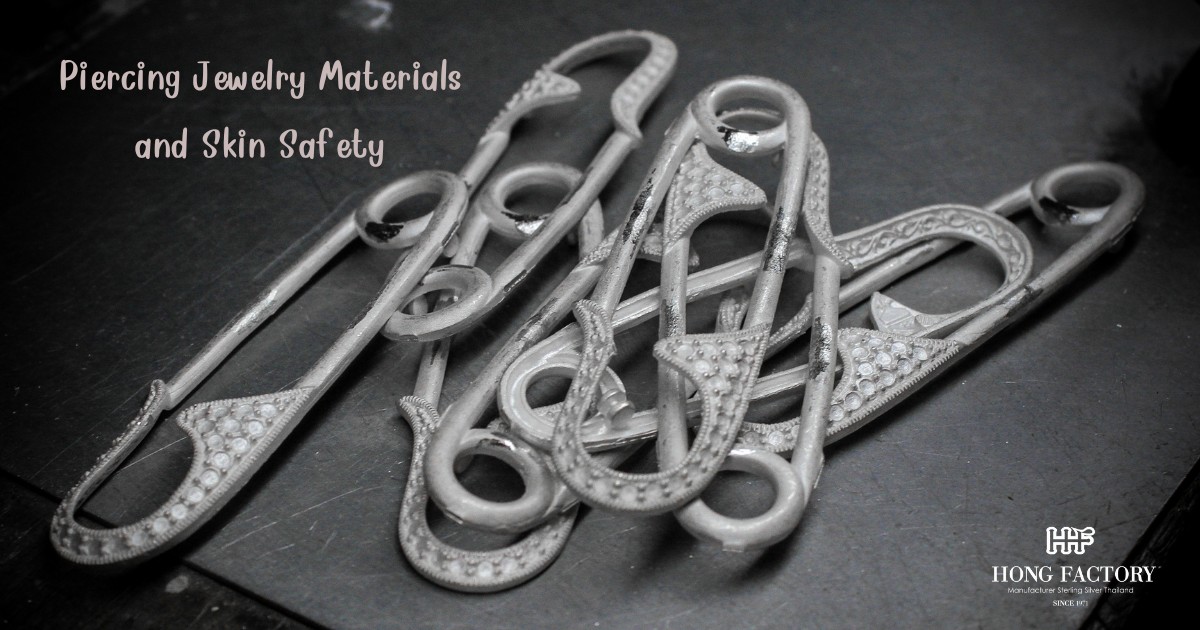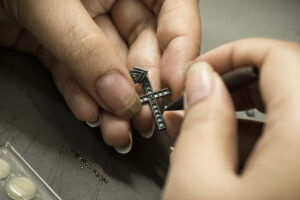
Piercing Jewelry Materials and Skin Safety
- by admin
Choosing the right piercing jewelry is not just about style, it’s also about protecting your skin. The materials used in piercing jewelry can affect healing, comfort, and long-term health. This guide will help you understand which materials are safe and which to avoid. Marcasite stone

Common Piercing Jewelry Materials
Surgical Stainless Steel
- Hypoallergenic: Commonly used in professional piercings.
- Durable and Affordable: Resists corrosion and suitable for healed piercings.
- Nickel Content: Some varieties contain small amounts of nickel, which can cause irritation in sensitive skin.
Titanium
- Highly Biocompatible: One of the safest materials for all skin types.
- Lightweight and Strong: Ideal for new piercings.
- Nickel-Free: A great option for those with metal allergies.
Niobium
- Similar to Titanium: Safe, strong, and hypoallergenic.
- Rare and Slightly More Expensive: Excellent for sensitive skin.
Gold (14k and Higher)
- High Purity Levels: Use only solid gold that is 14k or above.
- Avoid Gold-Plated Jewelry: Plating can wear off and expose irritating metals underneath.
- Not Ideal for New Piercings: Best used in fully healed piercings due to softness.
Platinum
- Luxury Material: Hypoallergenic and very durable.
- Does Not Tarnish: Great for sensitive skin and long-term wear.
Bio last or Bio flex
- Flexible Plastic: Ideal for sensitive or healing piercings.
- Nickel-Free and Comfortable: Reduces swelling and irritation.
- Often Used in Medical Settings: Recommended by many professionals.
Materials to Avoid
Cheap Alloys
- Unidentified Metals: Can contain nickel, lead, or other irritants.
- May Cause Infections: Often poorly made and not sterilized.
Acrylic
- Brittle Material: Can crack easily and harbor bacteria.
- Not Recommended for Long-Term Use: Especially in healing piercings.
Gold-Plated Jewelry
- Wears Off Over Time: Exposes base metal, which can cause reactions.
- Better for Occasional Wear: Not suitable for healing skin.

Tips for Safe Piercing Jewelry
Choose Professional-Grade Materials
Always buy jewelry from reputable sources that specify the material type and grade.
Prioritize Comfort
If the jewelry feels heavy, itchy, or painful, replace it with a safer, lighter option.
Observe Your Skin
Redness, swelling, or itching could be signs of a reaction. Switch to hypoallergenic materials immediately.
Consult a Piercing Expert
If you’re unsure which material is right for your skin, speak with a professional piercer.
Your skin deserves care especially when it comes to body piercings. By selecting high-quality, skin-safe materials, you reduce the risk of complications and ensure your jewelry looks and feels good. Invest in safe, stylish piercing jewelry that keeps your look fresh and your skin happy.
Choosing the right piercing jewelry is not just about style, it’s also about protecting your skin. The materials used in piercing jewelry can affect healing, comfort, and long-term health. This guide will help you understand which materials are safe and which to avoid. Marcasite stone Common Piercing Jewelry Materials Surgical Stainless Steel Hypoallergenic: Commonly used…